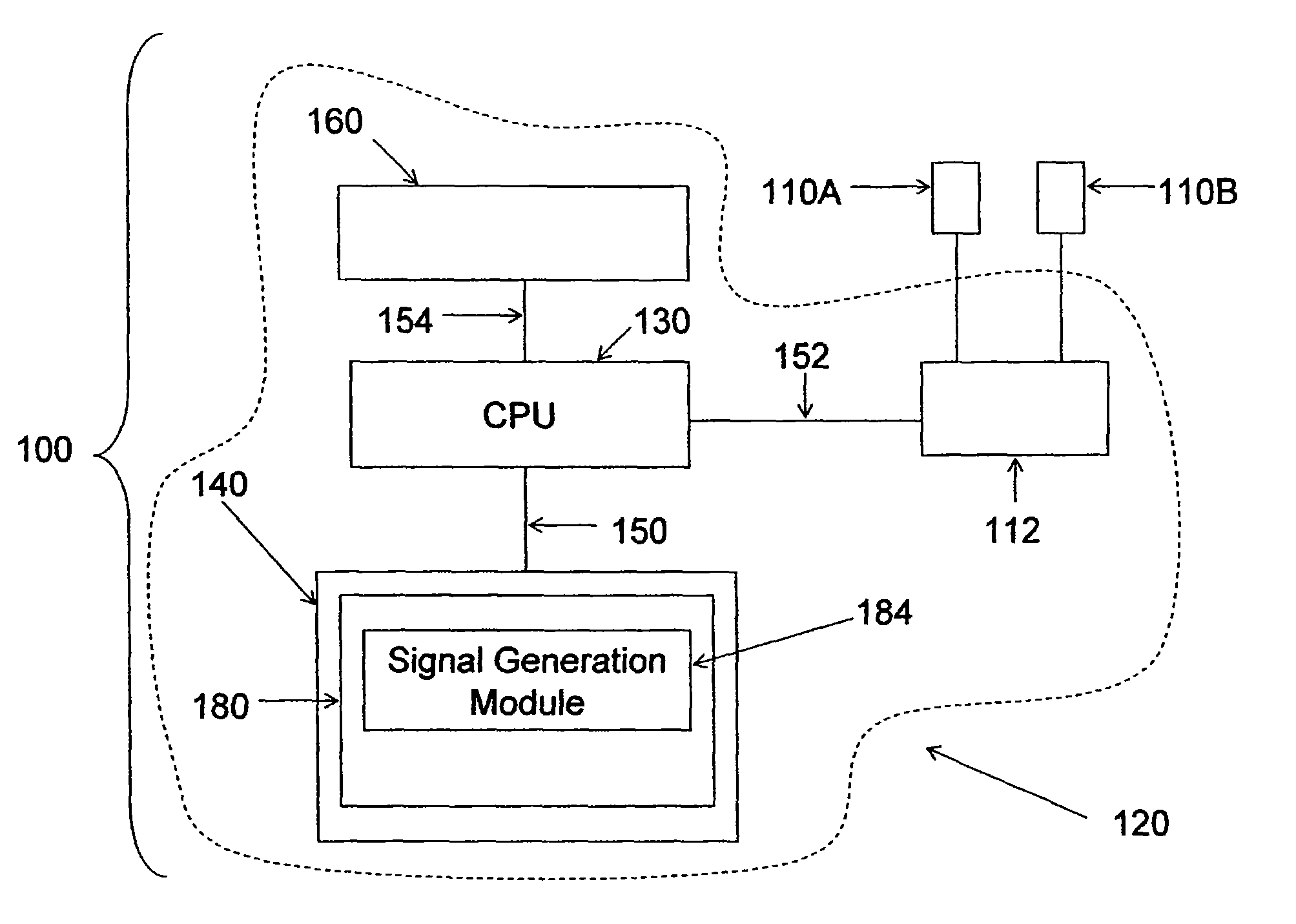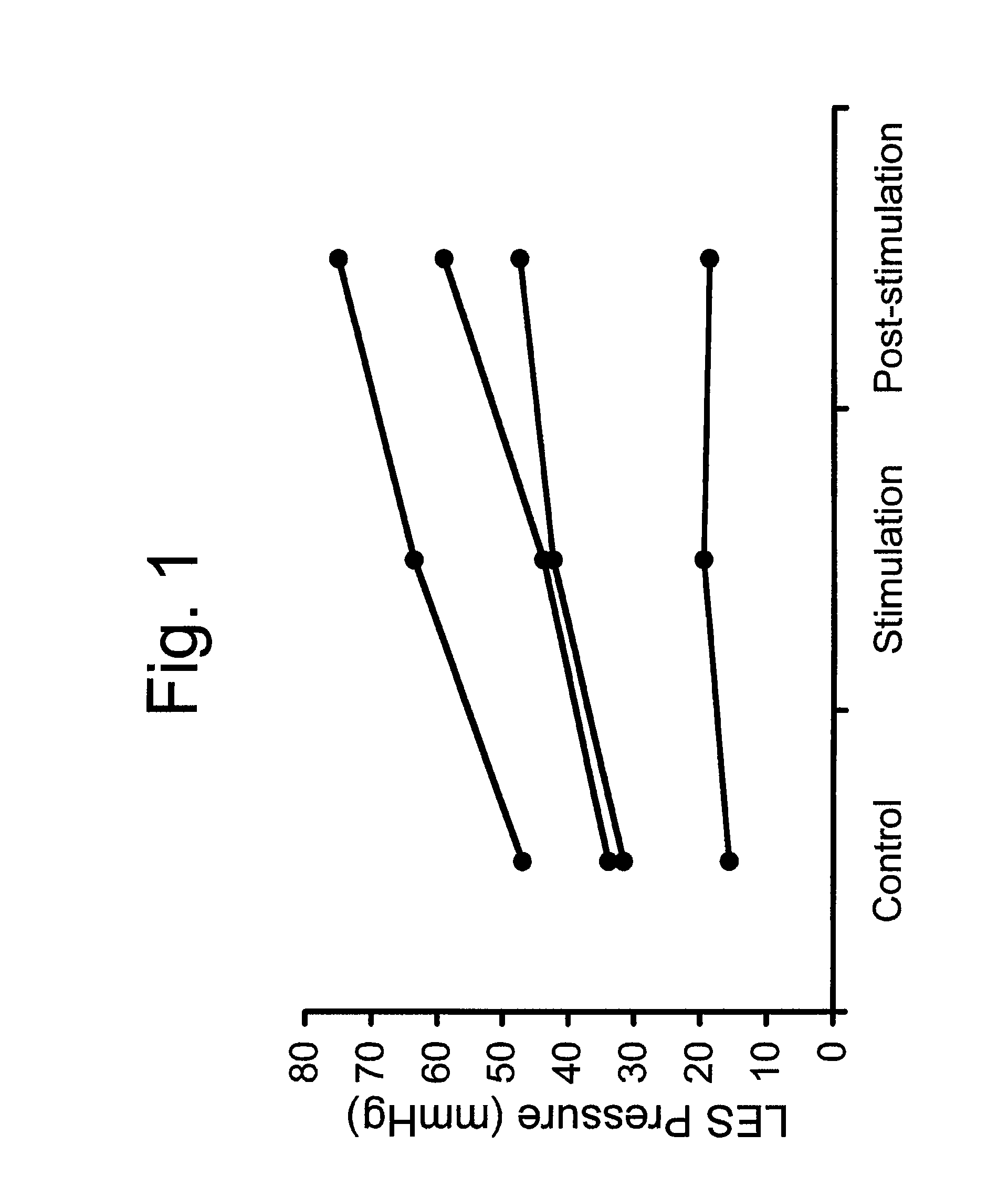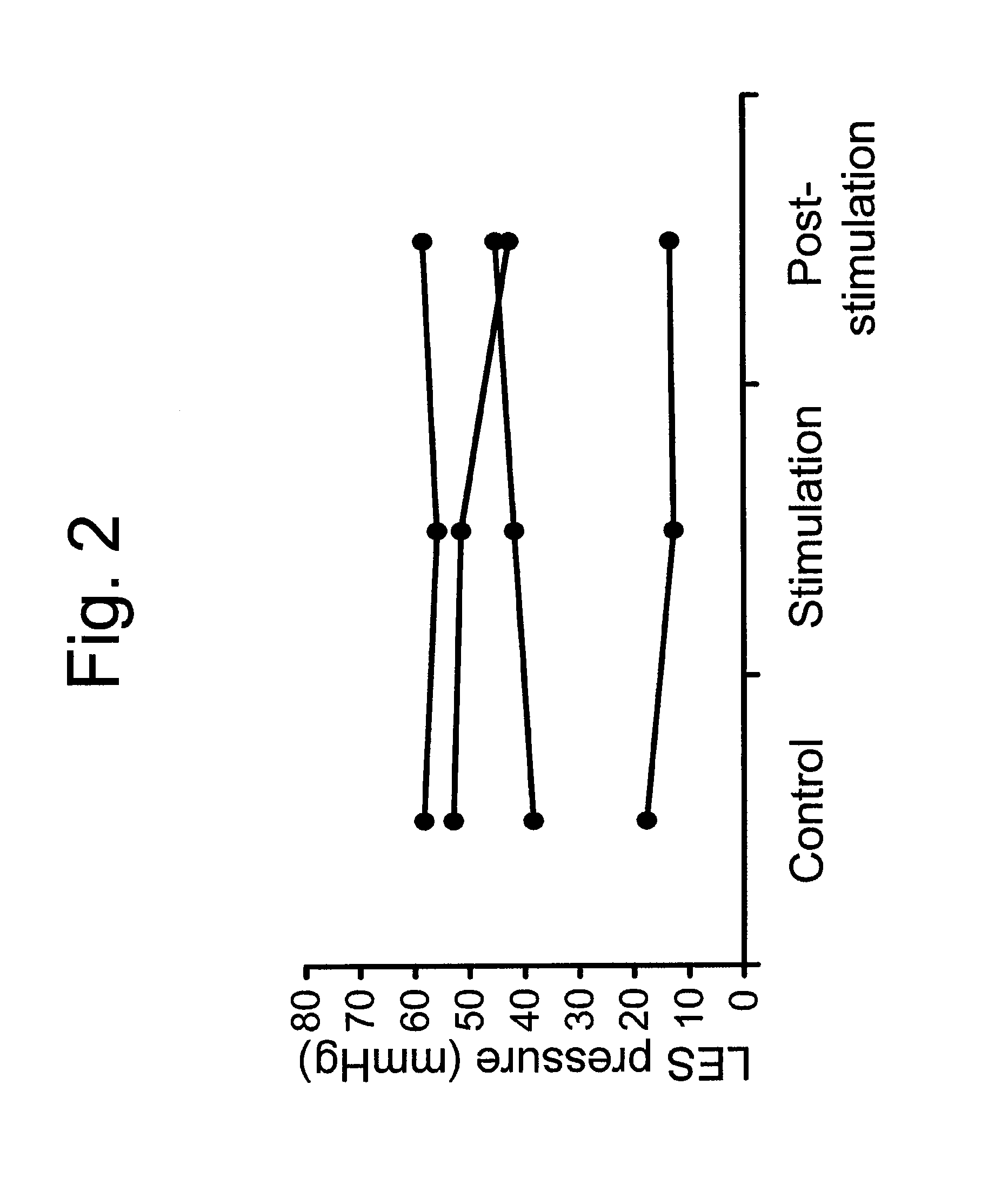Use of electrical stimulation of the lower esophageal sphincter to modulate lower esophageal sphincter pressure
a technology of esophageal sphincter and electrical stimulation, which is applied in the field of use of electrical stimulation to modulate the lower esophageal sphincter pressure, can solve the problems of tegaserod, lack of long-term data on safety and success of new endoscopic treatments, and disadvantages of treatment options, so as to increase les pressure and decrease esophageal pressure
- Summary
- Abstract
- Description
- Claims
- Application Information
AI Technical Summary
Benefits of technology
Problems solved by technology
Method used
Image
Examples
example 1
[0074]The inventors conducted a study to determine if electrical stimulation of the lower esophageal sphincter can affect lower esophageal sphincter pressure and, if so, to explore the mechanisms by which electrical stimulation affects lower esophageal sphincter pressure.
[0075]Four female hound dogs (weight: 20-25 kg) underwent an esophagostomy that allowed the introduction of a sleeve manometry catheter into the esophagus; the sleeve was positioned at the lower esophageal sphincter. They were also implanted with a pair of electrodes along the longitudinal axis of the lower esophageal sphincter. The electrodes were exteriorized at the level of the neck.
[0076]After three weeks of recovery, the animals underwent esophageal manometry recording during control and electrical stimulation, performed randomly on separate days, using five different stimulations continuously recorded for one hour, as illustrated in the following table.
[0077]
ElectricalTrainPulseStimulationdurationdurationPulse...
example 2
[0080]Three female mongrel dogs underwent continuous recording of lower esophageal sphincter pressure under anesthesia. NGES was delivered to the lower esophageal sphincter for 10 minutes at: (1) baseline, (2) after L-NAME infusion (50 mg / kg) and (3) after atropine injection (0.05 mg / kg in the presence of L-NAME).
[0081]Changes in lower esophageal sphincter pressure during NGES are presented as percent change from preceding baseline. Results (FIG. 6) are presented as mean±SD.
[0082]
NGES +L-NAME +NGESNGES + L-NAMEAtropineLower Esophageal20.7 (3.7)35.7 (5.1)*24.1 (6.8)Sphincter PressureBaseline (mmHg)Initial Peak (% 31 (22.7) 76 (48.6)27.3 (39.9)change)Peak Duration (sec) 1.5 (0.5) 6.7 (3.9) 3.9 (0.7)Relaxation (%68.8 (28.6)28.2 (34.1)**20.4 (13.5)**change)Relaxation Duration 8.1 (0.8) 4.4 (3.8) 4.3 (3.8)(sec)*p **p
[0083]NGES induced an initial rise in lower esophageal sphincter pressure followed within a few seconds by relaxation with slow resumption of pressure over a one minute pe...
PUM
 Login to View More
Login to View More Abstract
Description
Claims
Application Information
 Login to View More
Login to View More - R&D
- Intellectual Property
- Life Sciences
- Materials
- Tech Scout
- Unparalleled Data Quality
- Higher Quality Content
- 60% Fewer Hallucinations
Browse by: Latest US Patents, China's latest patents, Technical Efficacy Thesaurus, Application Domain, Technology Topic, Popular Technical Reports.
© 2025 PatSnap. All rights reserved.Legal|Privacy policy|Modern Slavery Act Transparency Statement|Sitemap|About US| Contact US: help@patsnap.com



